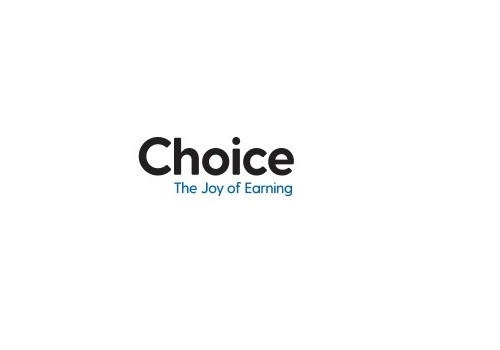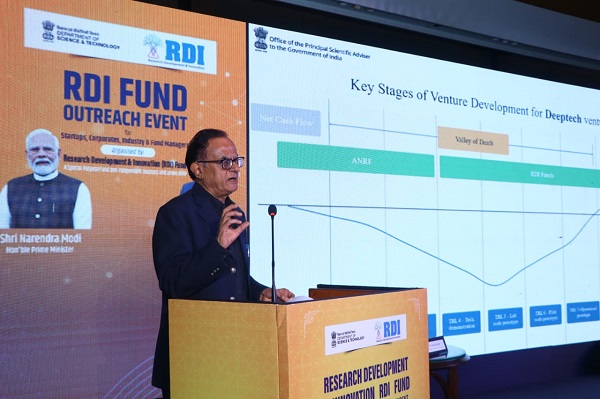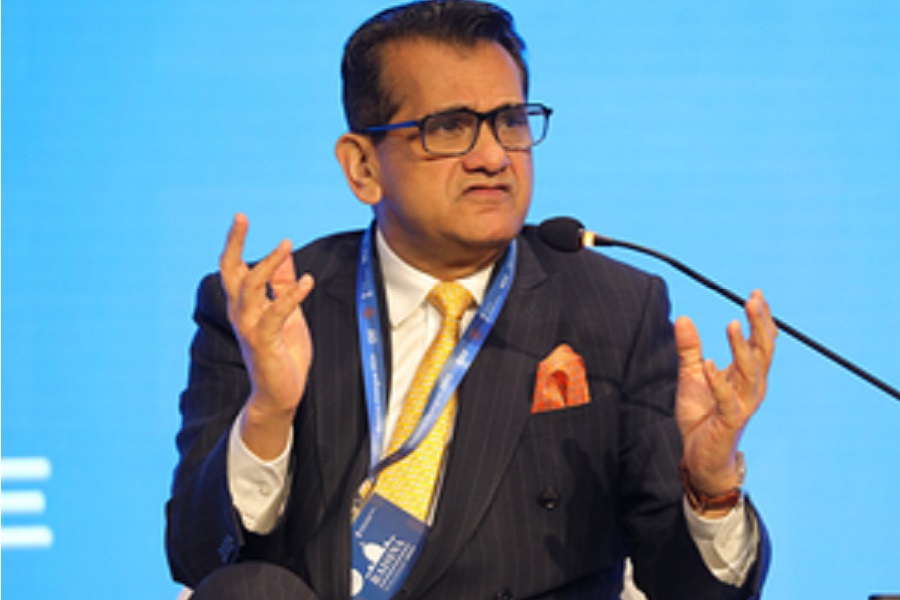Nureca coming with an IPO to raise upto Rs 100 crore

Nureca
-
Nureca is coming out with a 100% book building; initial public offering (IPO) of 25,00,000 shares in a price band Rs 396-400 per equity share.
-
At least 75% of the issue will be allocated to Qualified Institutional Buyers (QIBs), including 5% to the mutual funds. Further, not more than 15% of the issue will be available for the non-institutional bidders and the remaining 10% for the retail investors.
-
The issue will open for subscription on February 15, 2021 and will close on February 17, 2021.
-
The shares will be listed on BSE as well as NSE.
-
The face value of the share is Rs 10 and is priced 39.60 times of its face value on the lower side and 40.00 times on the higher side.
-
Book running lead manager to the issue is ITI Capital.
-
Compliance Officer for the issue is Gurvikram Singh.
Profile of the company
The company is a B2C company engaged in the business of home healthcare and wellness products, which offers quality, durability, functionality, usability and innovative designs. It enables its customers with tools to help them monitor chronic ailments and other diseases, to improve their lifestyle. It is a digital first company wherein it sells its products through online channel partners such as e-commerce players, distributors and retailer. Further, it also sells its products through its own website drtrust.in.
The company has most of the product lines supporting home health market in India, making it a one-stop solution provider. Dr Trust is a known for its innovative products in the market, and, with the segment showing significant potential for growth, the company is positioned to show significant growth.
The company has a diversified product portfolio, which primarily caters to home healthcare sector. It provides an improved product mix to its customers and their preferences thereby targeting a wider customer base. Its growth is further driven by its ability to make available an assortment of quality products under trusted brands built by the company.
Proceed is being used for:
-
Funding incremental working capital requirements of the company.
-
General corporate purposes.
Industry overview
The Home Healthcare Market in India is highly fragmented, with proliferation of local companies, constituting large unorganized sector. Lax regulations and poor compliance in the unorganized sector have led to flooding of poor quality of products in the market. Additionally, the high number of players leads to high competition and pricing pressures, which in turn, results in reduced margins and scalability issues. Home health products, even from reputed companies, are considered consumer grade (not hospital grade), leading to concerns regarding accuracy measures with the product. This is a major concern for clinicians, and they are often deterred from participating/recommending home healthcare products. Their additional concerns with Home Health are risks of inappropriate dose delivery and of self-medication by patients.
The Home Health Market in India and neighbouring countries is estimated at Rs 20,757 crore in 2019 and is expected to grow to Rs 38,920.7 crore by 2025 at a CAGR 11.0%. Nutritional Supplements Segment forms 86% of the total Home Health Market, followed by Chronic Disease Products segment at 6.5%. Highest growth is expected in Lifestyle products, especially Fitness trackers, at CAGR 14.5%, but the other product segments are also growing at robust, similar growth rates between 2019 and 2025. Home healthcare helps reduce hospital visits, thereby reducing hospital induced infections. In a survey conducted, it was found at least 70% of the outpatient visits happening didn’t require physical interaction and could be replaced with tele-consultations or remote monitoring. While the effort to reduce hospital acquired infections is a continual battle, the raging COVID-19 pandemic and fear of infection has pushed people towards virtual visits and home health products where hospitalization was not necessary e.g. digital blood pressure monitors, nebulizers, thermometers etc.
Pros and strengths
Strong portfolio of products and consistent focus on quality and innovation: In order to offer new and varied products to its customers, the company focus on creating innovative products with an emphasis of quality and efficiency. Further, it focuses that its products are adhered to the most stringent CE and FDA guidelines. Therefore, majority of the manufacturing facilities and processes used by the company’s suppliers for manufacturing its products be approved by the FDA and their respective regulators. Its focus on quality is maintained at all stages, right from the sourcing of raw materials and manufacturing to the product development, which is subject to a rigorous review and monitoring process. For products which are sourced by the company from third party, it has a dedicated sourcing team or it hire third party services which closely monitors the quality of such products. Its efforts to maintain the quality of its products have been well recognised in the industry.
Asset light business model and competitive products: The company’s business model relies on its ability to design products that are of good quality, innovative and functional, through optimal sizing from a suitable manufacturer or vendor and its long standing relationship with its vendors. The company enter into agreements with vendors who manufacture its products as per its specifications and this allows it to scale its operations quickly at a pre-determined cost and as per its quality standards without incurring any capital expenditure on manufacturing facilities. It has set internal parameters in relation to its products, which has led to establishment of its brand identity amongst its customers. It operates on an asset light business model which does not require it to invest heavily on physical assets such as plant and machinery, land and property and therefore this business model allows it to be capital efficient.
Combination of technical expertise and understanding of Indian consumer preference: The company’s brands i.e Dr. Trust, Dr. Physio and Trumom have built a reputation of introducing innovative products that appeal to Indian customers. It combines its technical expertise with an understanding of the Indian home healthcare market developed through market feedback and extensive interaction with its vendors. Through these efforts, the company seek to be the first to introduce innovative products in the market with unique functionalities that create new demand.
Experienced promoter with strong senior management team having domain knowledge: The company has an experienced professional management team under the overall stewardship of Saurabh Goyal. The experience of the company’s Promoter in the home healthcare sector is supplemented by its senior management team. Its management team’s in-depth understanding of target markets and client demand and preferences have enabled it to grow its business and expand its operations. Their understanding of industry trends, demands and market changes, have enabled it to adapt and diversify its offerings and leverage market opportunities.
Risks and concerns
Depend on third parties to manufacture products: The company obtains all of its products from third parties. Generally, it does not have long-term contracts with its vendors committing them to supply products to it. If the company’s vendors are unable to manufacture its products in sufficient quantities and on a consistent basis, or if it becomes unwilling to produce those equipment’s for it, it may not be able to supply its customers in a timely manner. Presently, the company majorly outsource the manufacturing of its products to certain foreign vendors and as well as certain vendors in India under its own brand name. If the company was to experience a supply disruption, it could take an extended period of time to find and qualify an alternate vendor. Other risks associated with the company’s reliance on third parties to manufacture these products include, reliance on the third party for regulatory compliance and quality assurance, misappropriation of the Company’s intellectual property, limited ability to manage its inventory.
Significant working capital requirements: The company’s business requires a substantial amount of working capital, primarily to finance its inventory. Moreover, it may need working capital for the expansion of its business. As per its settled business terms, the company require to pay to its vendors the part amount of consideration at the time of placing the order and part the amount of consideration after the delivery of its consignment, as a result, significant amounts of its working capital are often required to finance the purchase of its products from its vendors. Majority of its working capital requirements in the ordinary course of its business are met from its internal accruals and equity. Accordingly, continued increases in company’s working capital requirements may have an adverse effect on its financial condition and results of operations.
Rely on third-party transportation providers for procurement of healthcare devices: The company depends on road transportation to deliver its finished products to its channel partners such as distributors and retailers. It relies exclusively on commercial vehicles and third-party transportation providers for procuring healthcare devices as well as for distributing its products to its channel partners such as distributors and retailers. This makes it dependent on various intermediaries such as domestic logistics companies and container freight station operators. The company cannot guarantee that there will not be any delay in transportation and delivery of its products to its channel partners such as distributors and retailers. Weather-related problems, strikes, or other events could impair its ability to procure healthcare devices from third party manufactures which may in turn delay the process supplying its products to its channel partners such as distributors and retailers, and this could adversely affect the performance of its business, results of operations and cash flows.
Face intense competition: The home healthcare market is intensely competitive and is characterized by extensive research and development and rapid technological change. The company’s customers consider many factors when choosing suppliers, including product reliability, clinical outcomes, breadth of product portfolio, price and product services provided by the manufacturer, product availability and market share can shift as a result of technological innovation and other business factors. Major shifts in industry market share have occurred in connection with product problems, physician advisories and safety alerts, reflecting the importance of product quality in the medical health product industry, and any quality problems with company’s processes, goods and services could harm its reputation for producing high-quality products and erode its competitive advantage, sales and market share. Its competitors range from small start-up companies to larger companies which have significantly greater resources and broader product offerings than it.
Outlook
Incorporated in 2016, Nureca is a healthcare and wellness products distributor. The company aims to offer the best quality, durable, and innovative tools to customers to monitor chronic diseases to improve their lifestyle. The firm has a well-diversified product portfolio including Chronic Device Products, Orthopedic products, Mother and Child products, Nutrition Supplements, and Lifestyle products to meet the Indian healthcare market requirements. It is the first digital company to sell such products through its website drtust.in and other online partners i.e. e-commerce players, retailers, and distributors. On the concern side, the company is dependent on limited number of channel partners such as third party e-commerce players, distributors and retailers for a substantial portion of its revenues. A reduction in limited number of channel partners could result in a significant reduction in its revenue. Besides, the markets in which the company operate are highly competitive in terms of pricing, product and service quality, product development and introduction time, customer service, financing terms and shifts in market demands, and competitors.
The issue has been offered in a price band of Rs 396-400 per equity share. The aggregate size of the offer is around Rs 99 crore to Rs 100 crore based on lower and upper price band respectively. On the performance front, total income increased by 60.51% from Rs 619.83 million in Fiscal 2019 to Rs 994.87 million during the Fiscal 2020. The increase in total income reflect growth in company’s existing business due to increase in distribution network and better marketing. Profit for the year was Rs 63.95 million in Fiscal 2020 compared to Rs 62.26 million in Fiscal 2019. The company intends to continue to leverage on its in-depth market research to enable it to introduce a wider range of products under its existing brands based on consumer preferences and demand and to distinguish ourselves from its competitors. It also intends to further expand its product portfolio by adding more supplement and nutrition products and create a pipeline of innovative healthcare and wellness products. Besides, the company intends to continue its brand building measures by introducing strategic marketing initiatives and customer engagement programs.

















